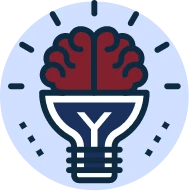Undergraduate Programmes (UG)
Candidates must have secured a minimum of 50% marks in 12th standard (Secondary School Certificate) from State Boards, CBSE, or CISCE (Council for the Indian School Certificate Examinations).
Postgraduate Programmes (PG)
Applicants must hold a bachelor’s degree in any discipline from a university/institution recognised by the UGC or an equivalent body, with a minimum aggregate of 50% marks or an equivalent grade (CGPA/CPI, etc.).
Final-year students may also apply, provided they can submit their final year degree certificate/mark sheet within the stipulated deadline. Admission will remain provisional until valid proof of passing the bachelor’s degree examination with the required percentage is submitted. Failure to do so will result in automatic withdrawal of admission without further notice.
Management Programmes
Candidates must have a valid test score in any of the following national-level entrance exams conducted in the current year:
CAT (conducted by IIMs)
XAT (conducted by XLRI)
MAT
NMAT
CMAT
GMAT (valid for five years—ensure your score remains valid until the enrolment date as per the schedule)
Note: IIMs and XLRI have no role in the selection process or conduct of the programme.
Engineering Programmes
Applicants must hold a B.E./B.Tech. degree in the relevant discipline.
Law Programmes
Candidates must possess an LL.B. degree or an equivalent qualification from a recognised university, with at least 50% marks in aggregate (45% for SC/ST and PWD candidates).
IILM University follows the UGC-mandated refund policy for all undergraduate and postgraduate programs

Transformative Learning Experience
-full-full.webp)
Delivering quality education with a legacy of three decades.

A strong, supportive alumni community spread across the globe.

Partnering with renowned global institutions for a holistic education experience.

Connecting students with leading employers for rewarding careers.

Eco-friendly campuses situated in prime, accessible locations.

Recognising and rewarding academic excellence with financial support.

Learn from experts with rich academic and industry experience.

Experience an engaging and dynamic environment both inside and outside the classroom.

A curriculum designed to meet global standards of education and practice.

Demonstrate expertise in applying psychological theories and techniques across counselling, organisational, and health psychology domains.

Develop advanced analytical skills for addressing psychological, organisational, and health-related challenges effectively.

Exhibit adherence to ethical guidelines and professional standards in diverse settings, ensuring responsible and compassionate practice.

Apply innovative and evidence-based methods to address mental health issues, workplace dynamics, and health promotion effectively.

Work collaboratively with multidisciplinary teams to deliver comprehensive mental health, organisational, and health care solutions.

Cultivate strong communication, empathy, and interpersonal skills to foster effective interactions with clients, teams, and communities.

Promote mental health awareness, wellness, and behavioural change through community programmes and campaigns.

Foster leadership capabilities and develop skills for training, mentorship, and organisational development.

Engage in research initiatives that contribute to the advancement of psychology and its practical applications in real-world contexts.

The BBA programme and its real-world exposure paved my way to the University of Leeds.
BBA 2022

The BBA programme and its real-world exposure paved my way to the University of Leeds.
BBA 2022

The BBA programme and its real-world exposure paved my way to the University of Leeds.
BBA 2022

Equip students with a thorough knowledge of psychological theories and practices relevant to their specialisation, fostering a deep understanding of mental health, organisational behaviour, and health promotion.
Develop ethical decision-making skills and cultural sensitivity for working effectively in diverse environments, including clinical, organisational, and healthcare settings.
Enable students to integrate evidence-based psychological principles to design and implement interventions for diverse challenges in counselling, organisational, and health psychology.
Foster the development of practical skills in psychological assessments, therapeutic techniques, organisational strategies, and behaviour modification to enhance professional competence.
Promote research capabilities, critical thinking, and innovation, encouraging students to contribute to the field through evidence-based practices and scholarly work.
